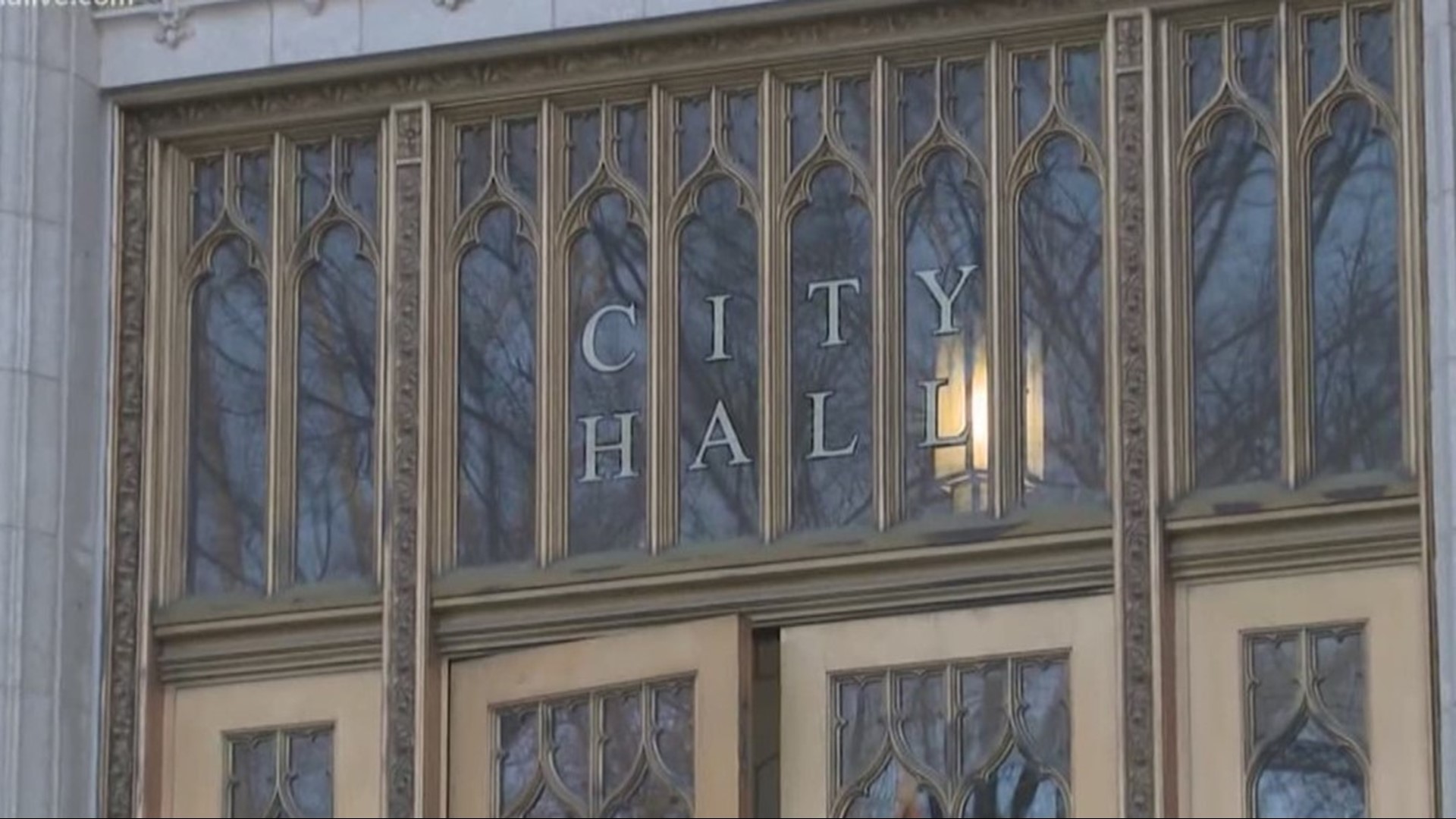ATLANTA — The Atlanta City Council unanimously passed a measure on Monday that will provide millions of dollars to revitalize the streets on the Westside while also essentially rejecting a proposal for an exception to a data center ban.
When it comes to Atlanta's Westside, getting around is as easy as shifting gears. But if someone doesn't have a car, it can be a difficult task just crossing the road. Adeline Collot is the program director for the Upper Westside Community Improvement District. The Upper Westside CID takes commercial and industrial property tax dollars and repurposes them to make improvements in the neighborhood.
Collot said the area from Vine City, winding through Georgia Tech and onto West Marietta Street and Joseph E. Lowery Boulevard, lacks consistent sidewalks.
"Atlanta’s got the BeltLine that’s up and coming, and that’s wonderful," Collot said. "But we really need to tie into the BeltLine to be able to bring more people from there to different amenities around town. Four travel lanes don't really help people drive at an appropriate speed. There are also very few traffic signals, so there are few reasons for people to slow down."
The Atlanta City Council passed a measure Monday unanimously, on a consent agenda, that now sends $16 million in federal grants, along with $7 million in local transportation tax funds, to address roads as part of the Westside Thrive Initiative.
Collot said the project would reduce West Marietta from four lanes to three lanes. One lane would go in each direction and include a center turn lane, making more room for a path for walking or biking.
“The lack of sidewalks is really our biggest problem," Collot said. "They’re walking in the street, they’re walking with strollers, walking their bikes. It’s just really not accessible to anyone that’s not able-bodied. That’s what we’re really trying to rectify, to tie in the walking infrastructure, biking infrastructure with the transit improvements. Not only is this a safety component, it’s also tying into a greater BeltLine network, which is a 22-mile loop. It’s tying into the Westside Beltline connector trail, which we’re currently building as well.”
Atlanta City Councilman Byron Amos, who represents district three and heads the transportation committee, said this project is part of a larger effort to revitalize streets around the city. He mentioned projects already underway on Cascade Road, Howell Mill Road, Campbellton Road, Monroe Drive and Boulevard.
"We want to actually look at how we do more pedestrian-friendly streets when it comes to walking, protected bike lanes, traffic improvement, signal improvements and things of that nature," Amos said. “This is to create connections so people can really get on a safe path, whether it’s on a sidewalk or bike, and go to several places and amenities on the Westside.”
Collot said there needs to be some sort of non-drivable access to Westside Park, which doesn't currently have pedestrian access. She said the design and permitting phase of the Westside Thrive project would take about two years, followed by construction in a little under three years.
"Without weaving the different parts of town together, we're really not weaving opportunity together," Collot said. "The Westside has been historically disenfranchised in a lot of ways. The goal is to knit Atlanta back together."
Meanwhile, the Atlanta City Council also considered a measure that would allow for an exception to its recently passed ban on data centers within half a mile of transit hubs and the BeltLine. An ordinance was passed in September outlawing the construction of such facilities near MARTA stations.
Councilman Matt Westmoreland, who holds the post two at-large seat, said he would rather see more affordable housing or greenspace near transit hubs than a data center.
"Those pieces of land should be used to be as people-centered as possible, to build as much housing as possible, to build places where as many jobs as possible will be," Westmoreland said. "If you look at data centers, they're both essential for the way we live our lives. They're also large buildings that use a large amount of electricity and water and create very few full-time jobs."
Westmoreland agreed that the city needed data centers to keep up with growing business and digital storage demands but said it was just a matter of where those data centers get built.
Councilman Antonio Lewis had authored legislation to make one exception to the ban on data centers near transit. If passed, it would open up land in the Adair Park neighborhood to house a data center. However, Lewis motioned to file Monday night -- effectively tossing out the proposal.
"With this piece here, I'm hearing this piece of dirt may not be acceptable to live in," Amos said. "Of course, there are always exceptions and things we can do. From best and highest use, I've heard from both sides."
Dozens of Atlanta residents attended the city council meeting wearing bright-colored vests and bringing signs supporting a new data center. Nasir Warsama, who owns a financial technology company, said a new data center would be a positive investment in Atlanta's future.
"It encourages the young people to go into technology, to take advantage of the technology progress and as a FinTech owner, to improve my business now and in the future," Warsama said.
Westmoreland suggested building data centers in Northwest Atlanta, a more industrial part of the city. According to Flexential, a top data center provider, Metro Atlanta has 86 data centers and counting.

